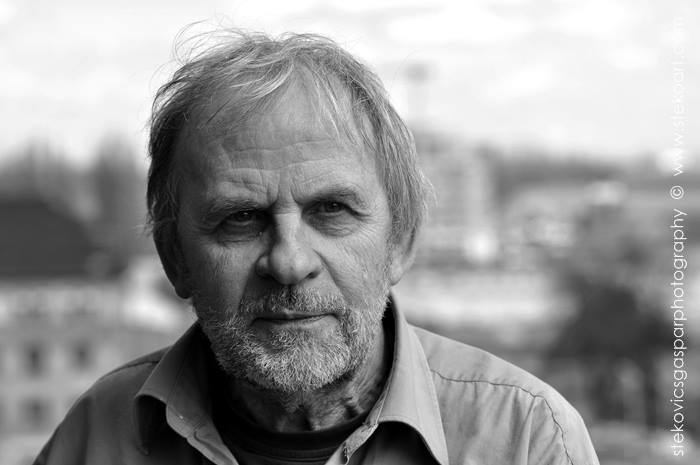Tamás Fodor (1942-) is a director, actor, and founding member of Orfeo Studio and Studio “K.”
He studied Hungarian literature and pedagogy at Eötvös Loránd University (ELTE) and began his career as an amateur actor. He performed as a member of the Universitas Company, which was organized within the University Stage at ELTE in 1961. This formation played a significant role in the life of the university. The 1970s were a kind of legendary period for the company, and its members sought themes and forms of art beyond the mainstream trends.
Tamás Fodor had state permission to function as an official performer, and he held independent performances and recited poems by authors who did not have the support of the official cultural policy. He said in his interview that these occasions were more than mere poetry recitations, because in the context of an authoritarian system, where suppression was strong and profound, every poem could move people. After his second performance, the agitation and propaganda secretary of the Budapest party committee appeared in Ibolya Surányi’s apartment, who was one of the organizers of University Stage and Fodor’s mentor. He was indignant, and he said that because of the programs in which Surányi and Fodor had participated, the state functionaries had had to read poems for days to check them. Surányi and Fodor were proud of this accomplishment: they had made party functionaries read poems.
Fodor’s independent career started in 1969, when he joined the Orfeo group. He established the theatre studio within the group two years later. The Studio seceded from the group and changed its name to Studio K.
The Orfeo members criticized official socialism from the left, on a Marxist foundation. They wanted to create performances with new styles and to communicate their views to society. Etolie (1971) was their first performance. In it, they discussed the theoretical and practical questions of the revolution. Vurstli (1972) presented the relationship between the individual and power. The state cultural authorities initiated an attack against Orfeo in 1972. They accused the members of the group of leading an immoral lifestyle and spreading hostile Western ideology. In the end, the prosecution did not condemn the members of the group, although they were excluded from every cultural institution. István Malgot and Tamás Fodor got a notice indicating that they were being accused of “spreading their antisocial views.”
Studio “K” staged a lot of important and impressive plays after 1974, as well, for example, the legendary Woyzeck (1977), Balkon (1979), and Leonce and Léna (1980). Tamás Fodor talked about the studio’s work in his interview: the company was against any schemas. Their aim was never to represent or interpret something. They just existed. They hated then and they hate now categorical concepts and any lack of tolerance in the arts or in human relationships.
Today, Tamás Fodor lives in the Orfeo studio/Studio K’s commune in Pilisborosjenő, where he works as a janitor, as he said in the documentary about Orfeo. He is active as an artist as well.

